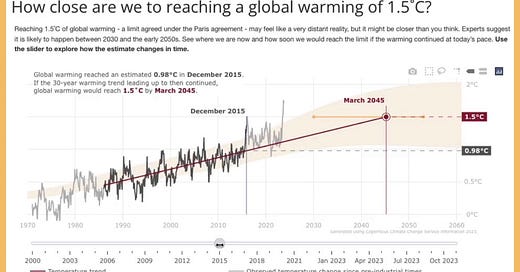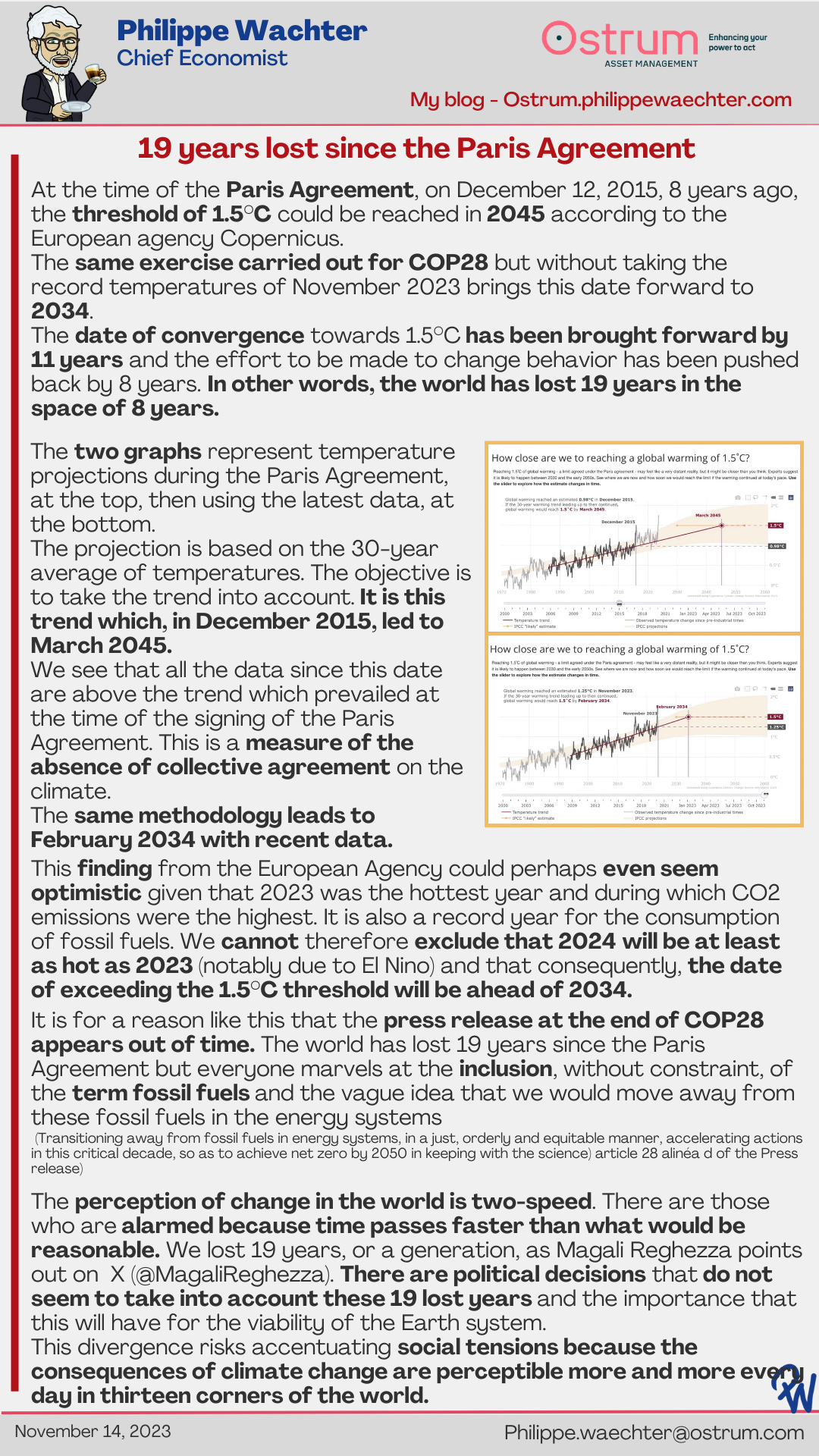19 years lost since the Paris Agreement
At the time of the Paris Agreement, on December 12, 2015, 8 years ago, the threshold of 1.5°C could be reached in 2045 according to the European agency Copernicus. The same exercise carried out for COP28 but without taking the record temperatures of November 2023 brings this date forward to 2034.
The date of convergence towards 1.5°C has been brought forward by 11 years and the effort to be made to change behavior has been pushed back by 8 years. In other words, the world has lost 19 years in the space of 8 years.
The two graphs represent temperature projections during the Paris Agreement, at the top, then using the latest data, at the bottom. The projection is based on the 30-year average of temperatures. The objective is to take the trend into account. It is this trend which, in December 2015, led to March 2045. We see that all the data since this date are above the trend which prevailed at the time of the signing of the Paris Agreement. This is a measure of the absence of collective agreement on the climate. The same methodology leads to February 2034 with recent data.
It is for a reason like this that the press release at the end of COP28 appears out of time. The world has lost 19 years since the Paris Agreement but everyone marvels at the inclusion, without constraint, of the term fossil fuels and the vague idea that we would move away from these fossil fuels in the energy systems
(Transitioning away from fossil fuels in energy systems, in a just, orderly and equitable manner, accelerating actions in this critical decade, so as to achieve net zero by 2050 in keeping with the science) article 28 alinéa d of the Press release)
The perception of change in the world is two-speed. There are those who are alarmed because time passes faster than what would be reasonable. We lost 19 years, or a generation, as Magali Reghezza points out on X (@MagaliReghezza).
There are political decisions that do not seem to take into account these 19 lost years and the importance that this will have for the viability of the Earth system. This divergence risks accentuating social tensions because the consequences of climate change are perceptible more and more every day in thirteen corners of the world.
______________________________________
Philippe Waechter is chief economist at Ostrum AM in Paris





